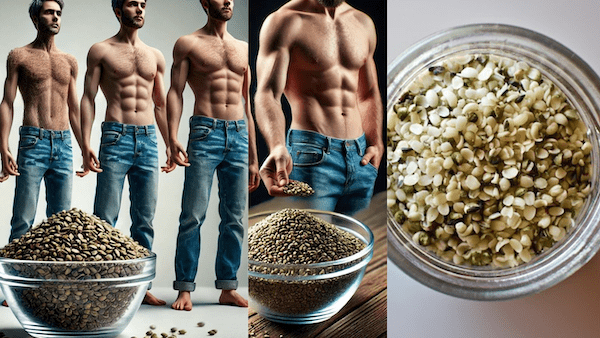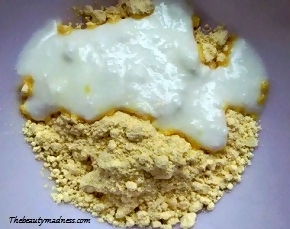1. Chia Seeds
- Nutrients: Omega-3 fatty acids, protein, calcium, fiber, magnesium, and antioxidants.
- Benefits: Good for heart health, bone strength, and digestion.
- How to Use: Add to smoothies, yogurt, oatmeal, or use in baking.
Nutritional profile of chia seeds(per 28 grams or 2 tablespoons)
Calories: 137
Protein: 4 grams
Fiber: 11 grams
Fat: 9 grams (mostly omega-3 fatty acids)
Calcium: 18% of the RDI
Magnesium: 30% of the RDI
Phosphorus: 27% of the RDI
Manganese: 30% of the RDI
Omega-3 Fatty Acids: 5 grams
Antioxidants: High levels
2.Hemp Seeds
- Nutrients: Complete protein, omega-3 and omega-6 fatty acids, iron, magnesium, and zinc.
- Benefits: A complete protein source with all nine essential amino acids. Promotes skin, heart, and muscle health.
- How to Use: Sprinkle over salads, cereals, or add to smoothies.
Nutritional profile of hemp seeds(per 28 grams or 2 tablespoons)
Calories: 161
Protein: 10 grams (complete protein)
Fiber: 1.2 grams
Fat: 12 grams (rich in omega-3 and omega-6)
Calcium: 2% of the RDI
Magnesium: 50% of the RDI
Phosphorus: 48% of the RDI
Manganese: 110% of the RDI
Iron: 16% of the RDI
Zinc: 21% of the RDI
Omega-3 Fatty Acids: 3 grams
3.Flaxseeds
- Nutrients: Omega-3 fatty acids (ALA), protein, fiber, lignans (antioxidants), and vitamin B1.
- Benefits: Supports heart health, reduces inflammation, and promotes healthy digestion.
- How to Use: Ground flaxseeds are best absorbed. Add to cereals, baked goods, or smoothies.
Nutritional profile of flaxseeds(per 28 grams or 2 tablespoons)
Calories: 150
Protein: 5 grams
Fiber: 7.6 grams
Fat: 12 grams (rich in omega-3 fatty acids)
Calcium: 7% of the RDI
Magnesium: 30% of the RDI
Phosphorus: 31% of the RDI
Manganese: 35% of the RDI
Omega-3 Fatty Acids: 6.4 grams
Antioxidants: High in lignans
4.Pumpkin Seeds
- Nutrients: Protein, iron, magnesium, zinc, and antioxidants.
- Benefits: Good for heart health, immune support, and bone strength.
- How to Use: Eat as a snack, add to salads, or mix with yogurt.
Nutritional profile of pumpkin seeds(per 28 grams or 2 tablespoons)
Calories: 151
Protein: 7 grams
Fiber: 1.7 grams
Fat: 13 grams (mostly healthy fats)
Calcium: 2% of the Recommended Daily Intake (RDI)
Magnesium: 37% of the RDI
Phosphorus: 33% of the RDI
Manganese: 42% of the RDI
Iron: 23% of the RDI
Zinc: 14% of the RDI
Antioxidants: High levels
5.Sesame Seeds
- Nutrients: Calcium, iron, magnesium, zinc, and vitamin B1.
- Benefits: Supports bone health and reduces blood pressure.
- How to Use: Add to stir-fries, salads, or use tahini (sesame seed paste) in dips like hummus.
Nutritional profile of sesame seeds(per 28 grams or 2 tablespoons)
Calories: 160
Protein: 5 grams
Fiber: 3.3 grams
Fat: 13 grams (healthy fats, mostly unsaturated)
Calcium: 21% of the RDI
Magnesium: 25% of the RDI
Phosphorus: 18% of the RDI
Manganese: 38% of the RDI
Iron: 24% of the RDI
Zinc: 18% of the RDI
Antioxidants: High in lignans
6.Sunflower Seeds
- Nutrients: Vitamin E, magnesium, selenium, and protein.
- Benefits: Boosts immune health, skin health, and reduces inflammation.
- How to Use: Snack on them, add to salads, or mix into baked goods.
Nutritional profile of sunflower seeds(per 28 grams or 2 tablespoons)
Calories: 164
Protein: 5.5 grams
Fiber: 2.4 grams
Fat: 14 grams (mostly unsaturated fats)
Calcium: 2% of the RDI
Magnesium: 9% of the RDI
Phosphorus: 20% of the RDI
Manganese: 30% of the RDI
Iron: 6% of the RDI
Vitamin E: 47% of the RDI
Antioxidants: High levels


































